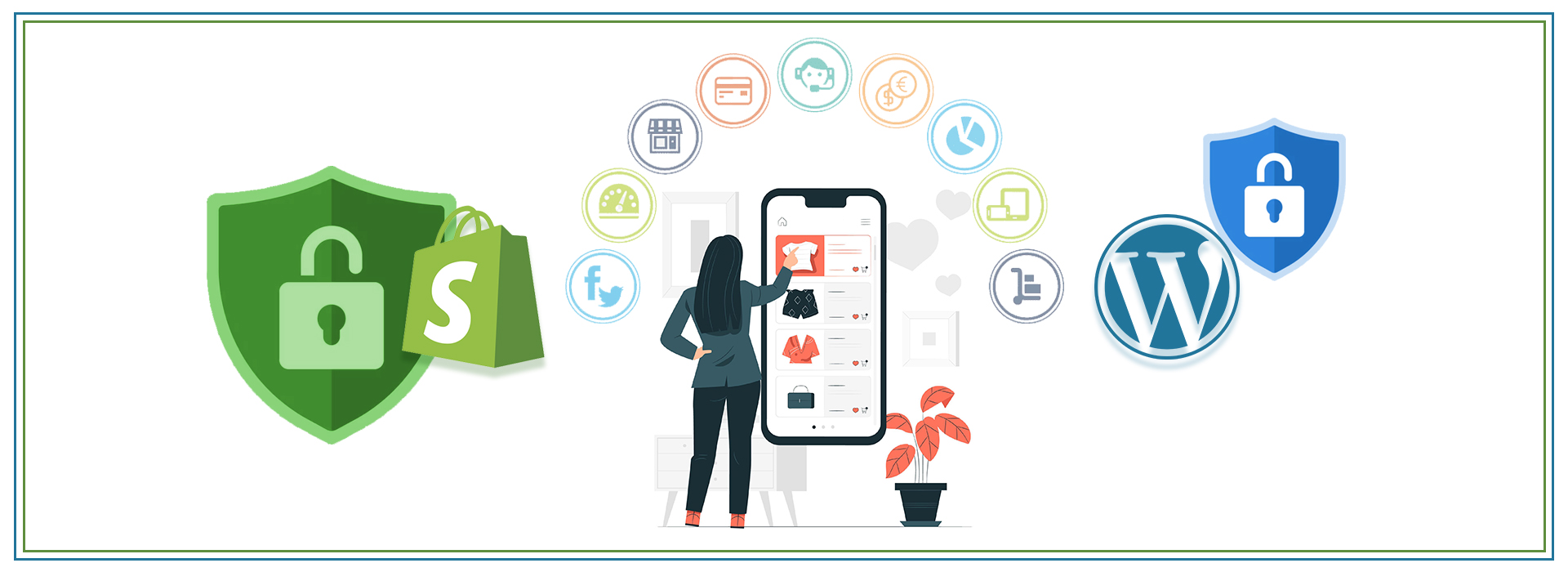Shopify and WordPress are two of the most popular platforms for building e-commerce websites. While both platforms are designed to help you create an online store, they differ in terms of features, pricing, and ease of use. In this article, we will compare Shopify and WordPress, and discuss their pros and cons to help you decide which platform is right for your business.
Shopify
Shopify is a hosted e-commerce platform that allows you to create an online store without any technical knowledge. It is designed to be user-friendly, with a drag-and-drop interface that makes it easy to customize your store’s design and layout. Shopify also offers a range of features and tools to help you manage your online business, such as payment processing, inventory management, and marketing automation.
Pros of Shopify:
1) Easy to use:
Shopify is very user-friendly and doesn’t require any technical knowledge. It comes with a drag-and-drop interface that allows you to customize your store’s design and layout.
2) All-in-one solution:
Shopify is an all-in-one solution that provides everything you need to set up an online store. It comes with payment processing, inventory management, and marketing automation tools.
3) Security:
Shopify provides a high level of security for your online store. It is PCI compliant, which means that it meets the standards for handling credit card data.
4) Customer support:
Shopify provides excellent customer support, with 24/7 access to support via phone, email, or live chat.
Cons of Shopify:
1) Cost:
Shopify can be expensive, especially if you want to use some of the advanced features. You will need to pay a monthly fee, which can add up over time.
2) Limited customization:
While Shopify allows you to customize your store’s design and layout, there are limitations to what you can do. You may not be able to create a completely unique look for your store.
3) Transaction fees:
Shopify charges transaction fees for every sale you make through their platform. This can add up over time, especially if you are selling high-value items.
WordPress
WordPress is a content management system that can be used to build a wide range of websites, including e-commerce stores. It is an open-source platform that is highly customizable and flexible. WordPress is also SEO-friendly, which means that it is designed to help your website rank well in search engines.
Pros of WordPress:
1) Flexibility:
WordPress is highly customizable and flexible, with thousands of plugins and themes available to help you create the website you want.
2) Cost:
WordPress is free to use, and many of the plugins and themes are also free. This can make it a more affordable option than Shopify, especially for small businesses.
3) SEO-friendly:
WordPress is designed to be SEO-friendly, which can help your website rank well in search engines.
4) Large community:
WordPress has a large community of users and developers, which means that there is a lot of support available if you need it.
Cons of WordPress:
1) Technical knowledge required:
WordPress requires some technical knowledge to set up and use effectively. You will need to know how to install and configure plugins, as well as how to customize your website’s design.
2) Security:
Because WordPress is open-source, it can be more vulnerable to security threats. You will need to take steps to protect your website from hackers and other malicious attacks.
3) Hosting:
Unlike Shopify, WordPress requires you to find your own hosting provider. This can be an additional expense and can also require technical knowledge to set up.
Comparison:
When it comes to choosing between Shopify and WordPress, there is no clear winner. Both platforms have their pros and cons, and the choice ultimately depends on your specific needs and budget.
If you want an all-in-one solution that is easy to use and provides everything you






